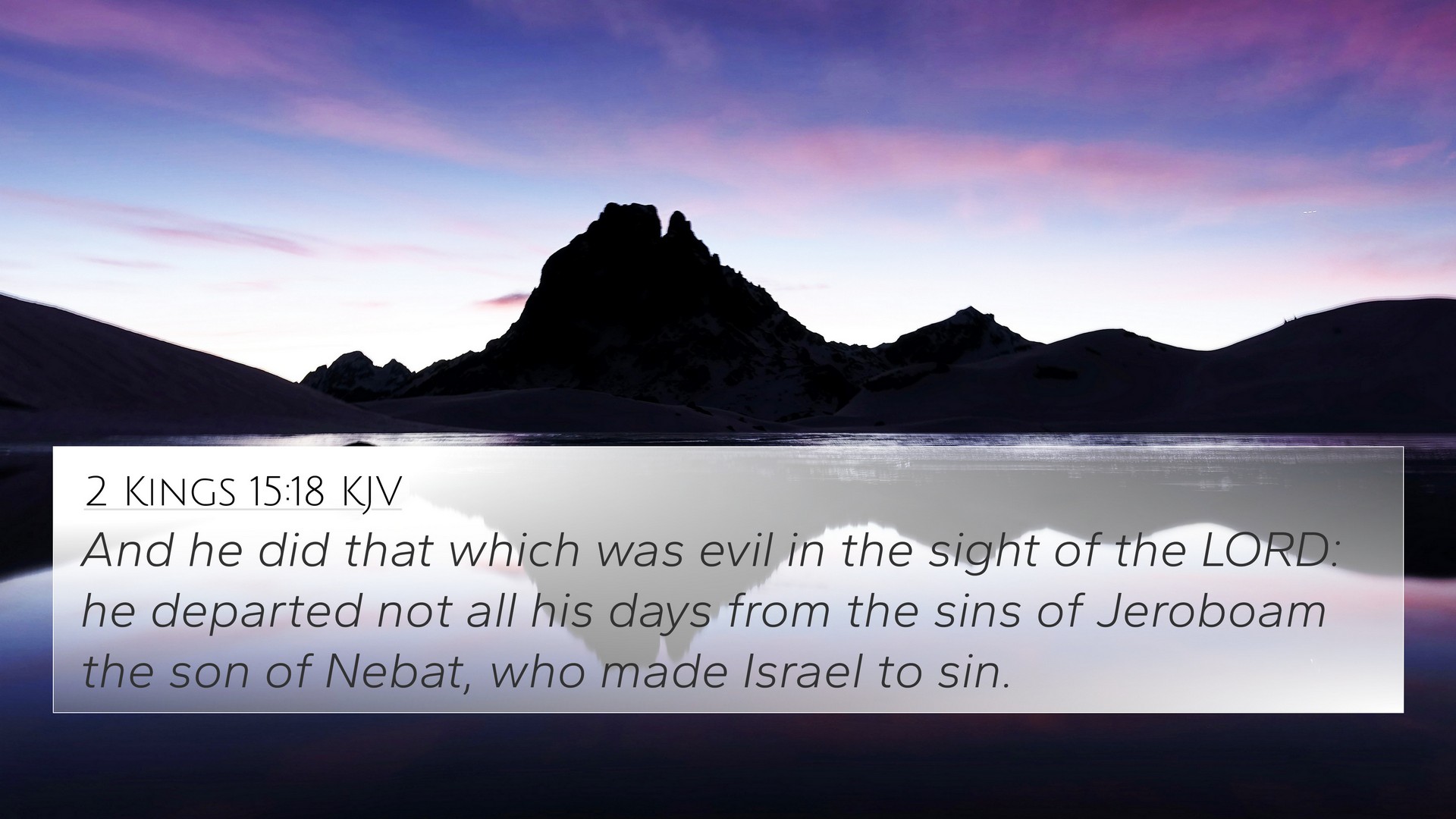Understanding 2 Kings 15:18
Bible Verse: 2 Kings 15:18 - "And he did that which was evil in the sight of the Lord; he did after the manner of the kings of Israel before him."
Summary and Insights
This verse provides a critical evaluation of King Zechariah's reign of Israel, emphasizing his failure to adhere to God's commandments. The commentary from Matthew Henry highlights the importance of the king's actions affecting the spiritual state of the nation.
Key Themes
- Judgment: The repeated phrase “did that which was evil in the sight of the Lord” is a motif throughout Kings, illustrating the divine assessment of leaders.
- Failure of Leadership: Albert Barnes notes that a nation's success is often tied to the righteousness of its rulers.
- Historical Context: Adam Clarke provides background on Zechariah as the last king of the dynasty of Jehu, emphasizing the consequences of a legacy of sin.
Comparative Analysis
When we explore the scripture, we find valuable Bible verse cross-references that help illuminate the context of 2 Kings 15:18. Among these connections, we can draw parallels with other biblical accounts that reflect on the righteousness or unrighteousness of kings:
Related Bible Verses
- 1 Kings 16:30: Ahab's evil behavior is compared to that of his predecessors.
- 2 Kings 21:2: Manasseh is described as having committed great sins, paralleling Zechariah's actions.
- 2 Chronicles 28:1: Ahaz's evil practices reflect the same disregard for God's laws.
- Jeremiah 22:17: Describes the effects of unjust leaders on the people, resonating with the narrative in Kings.
- Isaiah 1:23: God’s dismay at rulers and leaders reinforces the themes found in the historical books.
- Micah 3:1-4: God’s expectation of justice from leaders connects with the failure of Zechariah.
- Hosea 10:3: The societal consequences of a sinful leadership mirror Israel's plight during this period.
Cross-Referencing Insights
Understanding 2 Kings 15:18 through cross-referencing Biblical texts provides deeper insight into the character and legacy of Israelite kings. These references not only highlight individual actions but also reveal God’s unchanging standards.
Using Effective Cross-Referencing Tools
For those looking to deepen their study, utilizing a Bible concordance or Bible cross-reference guide can be invaluable. These tools enable readers to find connections between verses and themes more efficiently.
- Identify themes: By searching for themes such as leadership, divine judgment, and righteousness, you can trace the development of these concepts throughout scripture.
- Explore interconnections: Consider how narratives like those in 2 Kings redefine our understanding of obedience to God and the consequences of sin.
Thematic Connections
Connections between Bible verses often reveal a comprehensive portrait of divine expectations. In this case, Zechariah’s reign serves as a cautionary tale against neglecting one's duty to uphold God's laws. Thematic Bible verse connections can be found throughout historical literature, notably in both the Old and New Testaments, illustrating the continuity of God’s message.
Inter-Biblical Dialogue
The exploration of 2 Kings 15:18 opens a dialogue with various prophetic books and the history of Israel's kings. For example, the connection to Hosea and Amos provides prophetic context that critiques not just the actions of leaders but also the collective heart of the nation.
Conclusion
In summary, 2 Kings 15:18 serves as a significant verse that encapsulates the themes of sin, leadership, and divine judgment in Israel's history. Understanding its implications through comparative Bible verse analysis enhances our grasp of scripture's overarching narrative. By recognizing the cross-referenced themes and connecting various verses, we deepen our insight into God’s character and expectations for His people.


